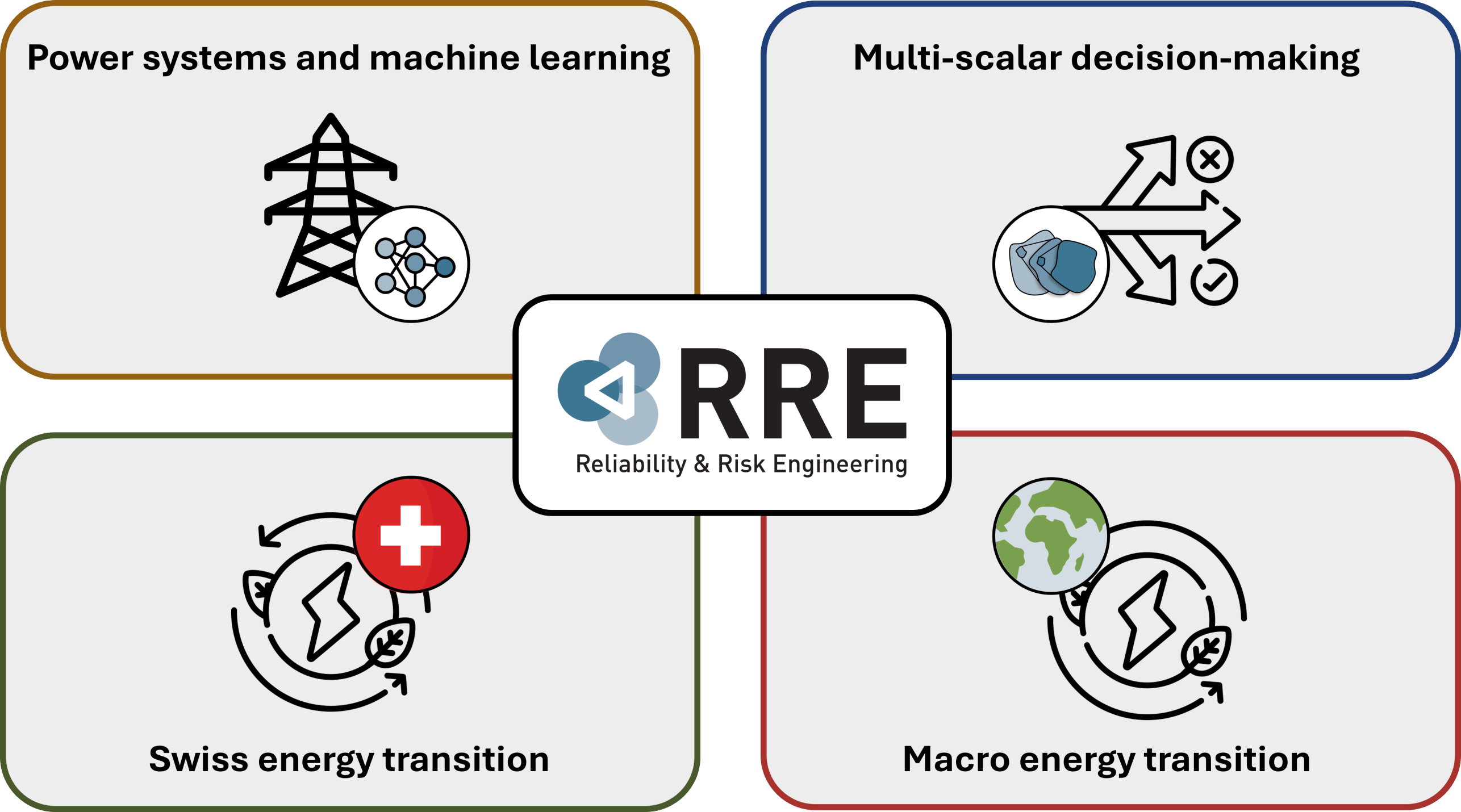Research
Current energy systems are undergoing a wave of transformations to comply with climate and renewable generation targets. This is resulting in new challenges and research questions, which are of interest for public and private institutions, as well as for policymakers. These research questions include the following:
- What are the risks to the security of supply in energy systems?
- How are interdependent systems and infrastructures affecting one another when coupling different sectors?
- How do we take into consideration planning and short- and long-term operation while ensuring a reliable energy supply?
- What is the optimal evolution of energy systems when accounting for equity, environmental and security factors?
To answer these questions, a multi-disciplinary research group with academic backgrounds ranging from mechanical to energy, electrical and automation engineering has been recruited and trained.
Clock on the link below to read more on the research areas investigated at RRE.
As an outcome of our research, the Reliability and Risk Engineering Lab has developed and made available computer models and data to support internal and external research. Click on the link below to read more about our open data and models.
Our research efforts are also applied in various projects with the aim of improving the societal welfare in Switzerland, Europe, and worldwide via the development of generalizable models. Click on the link below to read more about the academic collaborations carried out by the RRE Lab.
